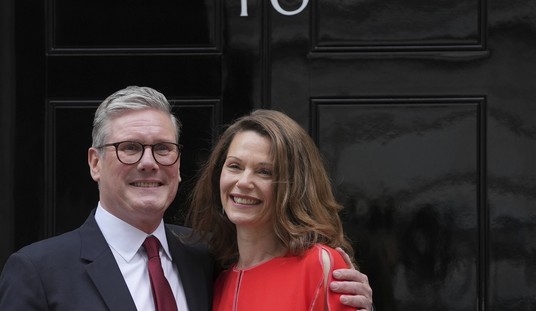It took long enough for Barack Obama to make this decision on Ben Bernanke’s replacement at the Federal Reserve. The President turned the choice into a months-long marathon, so much so that his purported favorite choice, Larry Summers, ended up suffering the figurative death by a thousand cuts along the way. Even when it became obvious that Bernanke deputy Janet Yellen was his only realistic option after Summers’ withdrawal, the White House let it be known that they were looking around for a better candidate, until finally acknowledging the inevitable three weeks later.
So, er … congratulations, Janet Yellen, or something:
President Obama on Wednesday will nominate Federal Reserve Vice Chair Janet Yellen to lead the U.S. central bank, officials said, selecting a renowned economist focused on combating unemployment for one of the most powerful positions in the world.
Yellen would become the first female chief of the nation’s central bank — or any major central bank. As Fed chairman, she would have vast power over the economy, and her record suggests that she would use it to continue for as long as possible a Fed stimulus program aimed at boosting growth. She would also be the top regulator of the nation’s financial system, an area in which less is known about her views.
Yellen, 67, who was chairman of the Council of Economic Advisers in the Clinton administration, would become the first Democrat to lead the Fed since Paul A. Volcker stepped down in 1987.
“Markets will be comfortable with a familiar face,” said Michael Feroli, chief U.S. economist at JPMorgan Chase.
U.S. President Barack Obama will nominate Fed number two Janet Yellen on Wednesday to run the world’s most influential central bank, providing some relief to markets that would expect her to tread carefully in winding down economic stimulus.
The nomination will put Yellen on course to be the first woman to lead the institution in its 100-year history. The advocate for aggressive action to stimulate U.S. economic growth through low interest rates and large-scale bond purchases would replace Ben Bernanke, whose second term as Fed chairman expires on January 31.
If confirmed by the U.S. Senate, which is expected to endorse her, she would provide continuity with the policies the Fed has established under Bernanke. Analysts say she would move cautiously in reining in policies in place to shore up the world’s largest economy.
The markets certainly can’t be impressed with the vote of confidence given to Yellen by the nominating process. They are probably more cheered by the reduced need to do tea-leaf reading through the evolution in executive management.
How difficult will it be for Yellen to get confirmed in the Senate? While the more progressive Senate Democrats pushed for Yellen over the moderate faction’s support for Summers, there isn’t any indication that the caucus as a whole will be split now on the nomination, or that the issue was ever about policy rather than personalities. Republicans might give Yellen a hard time, one in particular, according to National Journal:
More than most nominees, the pick for Fed director has traditionally been the prerogative of the president, as senators have been reticent to risk the market turmoil that could result from a prolonged battle over the bank’s leader. But at a time when Republicans have demonstrated their willingness to use any and all means available to leverage policy concessions, there’s no reason to believe that that precedent will be enough to usher Yellen through an easy confirmation.
Indeed, Sen. Ted Cruz, R-Texas, has already said he’ll use the nomination to look for leverage to pass legislation requiring a deeper audit of the Federal Reserve, a long-time dream of former Rep. Ron Paul, another Republican from Texas, that has become a mainstream goal of the modern GOP.
“That gives the opportunity to leverage,” Cruz said this summer when asked about Obama’s upcoming Fed nominee. “I certainly hope that, working together, we could force a vote on the Audit the Fed bill.”
In other words, even that isn’t about Yellen in particular; Cruz would have pushed that with any nominee. And Cruz might find himself rather isolated after the last few weeks. Don’t expect anything but a few tough questions in the hearing and probably 70 or more votes for confirmation on the Senate floor. No one wants to see Tim Geithner’s name come up again, after all.








Join the conversation as a VIP Member